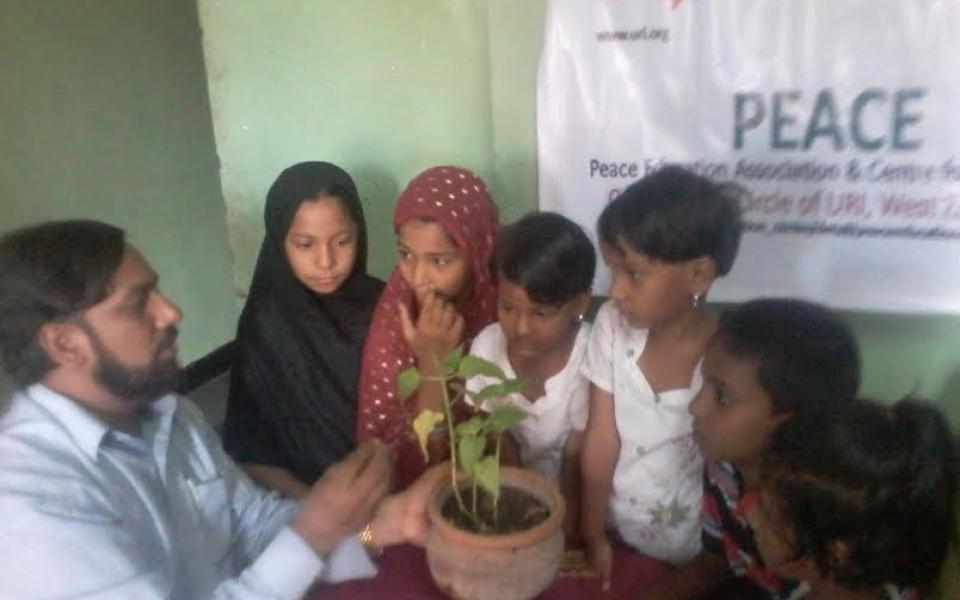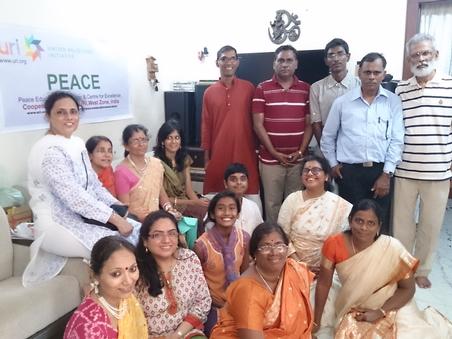
Dr. Sirajuddin. M. Horaginamani, an environmentalist and member of URI’s PEACE CC, organized a series of environmental awareness programmes during World Environment Day (June 5th) and World Ocean Day (June 8th) respectively, in Bijapur, Karnataka, India.
He began the educational series on June 3rd by creating environment awareness among street children. He strongly believes that gardening in schools and homes is a vital tool for children in order to learn and know more about the environment. He will continue to give effective green tips to other children on the topic of "How to grow environmentally friendly garden at schools and home.”
The above event was followed by another seminar on World Environment Day on 5th June 2014. Dr. Horaginamani, along with his colleague, ecotourism activist Nazeerahmed. M. Kachapur, celebrated the day by planting saplings and organising environmental awareness programmes among the residents of the KHB (Karnataka Housing Board) Colony at Bijapur. They emphasised the importance of preventing environmental pollution, which is bringing about devastating effects on the wellbeing of humanity.
They said natural disasters have been increasing due to the overexploitation of the forest. Dr. Sirajuddin said told residents, “There is a strong need to protect and develop forests in order to ensure a pollution-free and peaceful environment. Hence each one of us should work towards achieving the goal."
On June 8th, as part of World Oceans Day celebrations, Dr. Sirajuddin organized lectures for the student community of Secab Institute of Engineering and Technology, Bijapur. He highlighted the importance of oceans in our lives. He explained to them the composition and impact of polluting the oceans to all living creatures thus disturbing the ecosystems. He said, “Five different oceans together cover 71% (140 million square miles) of our planet Earth and contain 97 % of the planet's water.”
The oceans are treasures of fish and shellfish, roughly 200 billion pounds of seafood collected each year. The world's oceans play a vital role in determining the climate zones we see on land. Our oceans are a great source of food for humans, plants and animals. It is estimated that marine plants produce between 70 and 80 percent of the oxygen in the atmosphere. The oceans are the earth's largest ecosystem, yet they been severely damaged due to human activity.
Dumping of large amount of industrial waste, sewage sludge, radioactive waste and chemicals into oceans are hazardous for marine life. Toxic residues from pesticides, fertilisers, and other chemicals used on farms contaminate nearby rivers that flow into the ocean and kill marine life.

